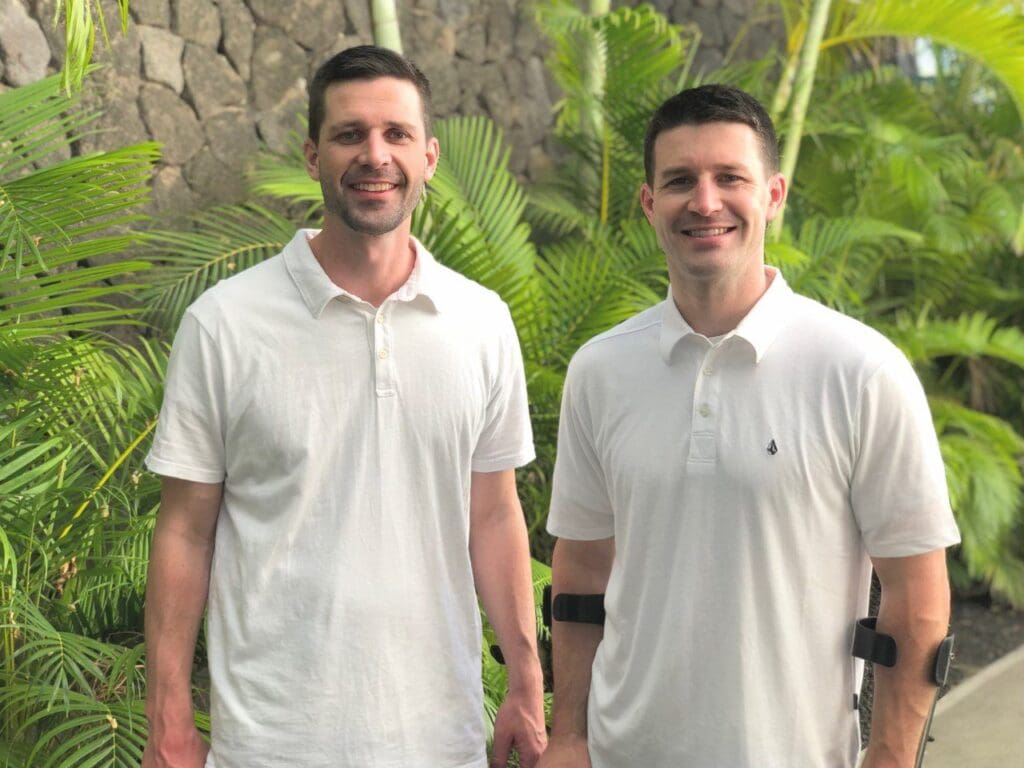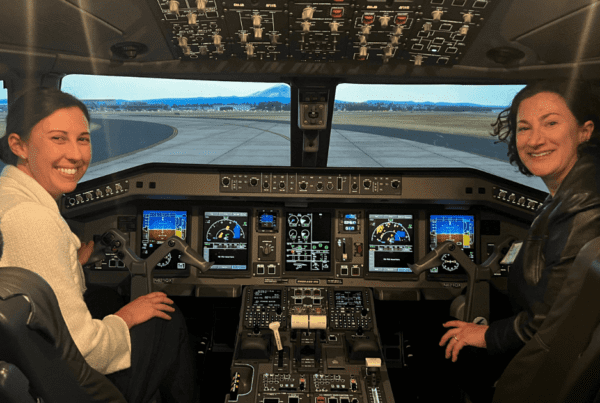Each year, some of the most accomplished University of Washington students are selected to represent their school by carrying its flag, or gonfalon, during commencement. While the 2021 ceremony will be virtual, the recognition continues to honor exemplary students from across the university.
These students are called gonfalonieres, and this year, one such student comes from the Department of Rehabilitation Medicine: Geoffrey Balkman, PhD, L/CPO.
Choosing rehabilitation medicine
Balkman was first introduced to rehabilitation medicine when his younger brother, Chandler, was in a boating accident on Lake Sammamish.
The boat severed Chandler’s leg at his hip, and Balkman, 22 at the time, canoed out to his brother, brought him to shore, and applied pressure to the wound until medics came and took him to Harborview Medical Center.
“I was in college at the time, and I watched my brother begin the rehabilitation process and receive his first prosthetic leg,” Balkman recalls.
While Balkman had intended to go into dentistry, his brother’s experience made him want to work in rehabilitation medicine. He went on to a master’s program in prosthetics and orthotics and began seeing patients in Southern California. Later, Chandler followed in Balkman’s footsteps and also became a prosthetist orthotist, a healthcare professional who makes and fits braces, splints and artificial limbs.
“It’s great to work in the same field. When I have a question about perspectives of patients who use prosthetic limbs, I can reach out and call him, and when he has a question about applying research to clinical practice, he calls me,” Balkman says. “It’s been really fun to share that bond; it’s like speaking the same language.”

Balkman (left) with brother Chandler (right)
A Seattle homecoming
After several years working with patients, Balkman faced an issue: there were few standardized, evidenced-based treatments to help prosthetic and orthotic patients.
“There were discrepancies in how clinicians were providing prosthetic and orthotic care and not a lot of rationale or evidence to justify the use of one intervention over another,” Balkman says.
He wanted to improve prosthetic care and contribute to the field in a meaningful way. In order to do that he needed to join the teams researching which treatments were most beneficial for patients.
After more than a decade away, this led Balkman back to Seattle to study rehabilitation science at the UW School of Medicine. During his time in school, he worked with Brian Hafner, PhD, to research and develop new standardized tests and measurement tools for prosthetists and orthotists.
“Right now, it’s hard to understand how well a prosthetic limb is working for an individual. Our goal is to improve quality of care by creating these new instruments and providing new ways for clinicians to assess patients,” he says.
A team effort
Balkman didn’t make the decision to return to school alone. He did so with the support of his wife, Akasha — who is also attending the University of Washington as a social work graduate student — and their four children.
“It was a scary decision to go back to school, but it felt like it was now or never,” Balkman says. “It’s cool that both of us have been able to pursue our dreams and continue our education, even though it seemed like we had already passed that point in our lives.”

Balkman and Akasha with their children (left to right): Camden (9), Carson (5), Madison (8) and Aspen (12).
This doesn’t mean the journey has been easy. Balkman’s research required him to travel to different parts of the country for four to five days at a time and, in between, he kept busy with recruiting study participants.
“It’s been a whole family effort. I think one thing for me is I had to learn to almost be nocturnal and get a lot done when the kids went to bed. That was my time to work and get my research and schoolwork done,” he says.
Full speed ahead
With commencement fast approaching, Balkman doesn’t plan to slow down any time soon.
He is currently part of a research project funded by the U.S. Department of Defense that will improve outcome measures used to evaluate patients with leg braces. In addition, he aims to teach in the prosthetics and orthotics program at the UW School of Medicine.
“My hope is that through the research we are conducting at UW, we can develop tools that effectively measure the changes in mobility and quality of life that I observed my patients experience after receiving a new orthotic device or prosthetic limb. These outcomes will help insurance providers and other health professionals better understand the benefits of these interventions and make it easier for patients to receive the care they need,” Balkman says.
Looking to the future, Balkman hopes these advances in assessment tools will contribute to improvements in prosthetic and orthotic technologies and allow patients to reach higher levels of mobility and success.
As for his time as a student, he has nothing but gratitude.
“It was challenging but also rewarding to be involved in such important research and receive such an amazing education at UW,” Balkman says.
Learn more about this year’s commencement and meet all of the 2021 gonfalonieres on the UW Alumni Association’s website.
Editor’s Note: Updated on June 9 to add link to the Alumni Association’s website.


